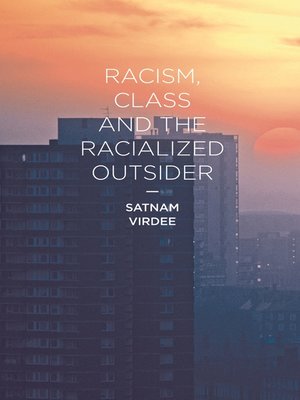
Sign up to save your library
With an OverDrive account, you can save your favorite libraries for at-a-glance information about availability. Find out more about OverDrive accounts.
Find this title in Libby, the library reading app by OverDrive.



Search for a digital library with this title
Title found at these libraries:
| Library Name | Distance |
|---|---|
| Loading... |
"Racism, Class and the Racialized Outsider is that rare thing nowadays, an academic book that not only engages with a wider public but also provides a sharp campaigning edge to the analysis. Historical and broad in its coverage, this is one of the best accounts of contemporary racism published in a good long time." Mark Perryman, Philosophy Football
Racism, Class and the Racialized Outsider offers an original perspective on the significance of both racism and anti-racism in the making of the English working class. While racism became a powerful structuring force within this social class from as early as the mid-Victorian period, this book also traces the episodic emergence of currents of working class anti-racism. Through an insistence that race is central to the way class works, this insightful text demonstrates not only that the English working class was a multi-ethnic formation from the moment of its inception but that racialized outsiders – Irish Catholics, Jews, Asians and the African diaspora – often played a catalytic role in the collective action that helped fashion a more inclusive and democratic society.
Racism, Class and the Racialized Outsider offers an original perspective on the significance of both racism and anti-racism in the making of the English working class. While racism became a powerful structuring force within this social class from as early as the mid-Victorian period, this book also traces the episodic emergence of currents of working class anti-racism. Through an insistence that race is central to the way class works, this insightful text demonstrates not only that the English working class was a multi-ethnic formation from the moment of its inception but that racialized outsiders – Irish Catholics, Jews, Asians and the African diaspora – often played a catalytic role in the collective action that helped fashion a more inclusive and democratic society.







